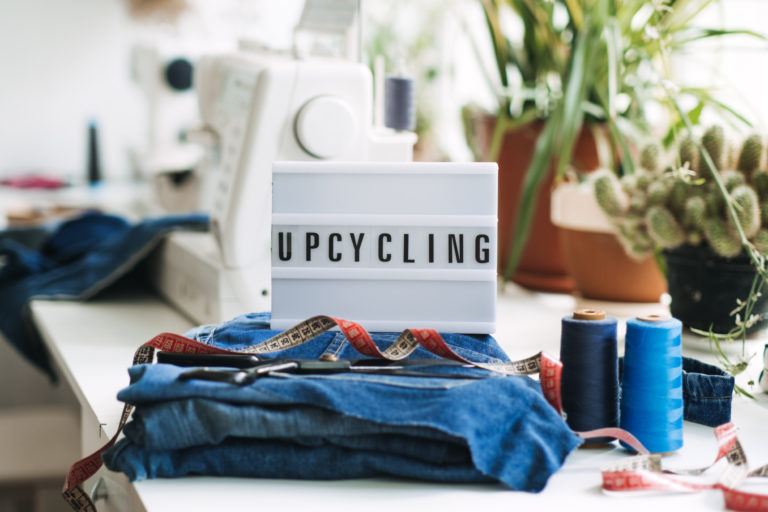di Tania D'Ausilio
The enormous waste, the intensive use of natural resources in the production process, make fashion one of the most polluting sectors in the world. For this reason, over time, even the certainly more aware consumer, has learned to be more attentive, seeking quality assurance in on-trend products: from supply chain traceability to environmental and also ethical sustainability. There are several aspects that must be taken into account, and we are clearly behind the rest of Europe considering that only in February 2021 has our country set up a Ministry of Ecological Transition. To date, according to a survey conducted by the European Commission, each citizen produces about 11 kilogrammes of textile waste and 87% of these ends up in landfills. The European goal will be to reduce this unsustainable percentage to 10% by 2035. A goal that can only be achieved through reuse and recycling activities and with the suppport of supply chains capable of managing consumption even after the end of the product's life … and something is moving. As a matter of fact, the entire fashion system is trying to comply with the directives by implementing various strategies.
In fact, the new RETEX.GREEN consortium for recycling in the fashion industry was born. A collective system that involves Italian manufacturers to improve and maximise the separate collection of waste coming not only from textiles and clothing, but also from footwear and leather goods.
The initiative was presented during the inauguration of Pitti Uomo 101 by the president of SMI (Sistema Moda Italia), Sergio Tamborini, who outlined the general purpose. The Consortium’s mission is the optimised management of waste from the fashion world, providing a concrete tool for the industrial process at all levels of the supply chain, and giving life to a virtuous path, with a view to environmental sustainability.
SMI and the Italian Textile Foundation, as partners and founders, will play the role of guarantors of the extended producer responsibility, also known as “Extended producer responsibility” or more briefly EPR, that is an approach in which the producer is also responsible for the management of post-consumer waste. In this sense, RETEX.GREEN stands as a support to achieve greater sustainability of the supply chain through a qualified network of suppliers who will take care of all the phases related to the collection, selection and sorting, reuse, recycling and valorisation of waste from products of textiles, clothing, footwear and leather goods.
The Consortium’s goal will be to provide “good practices” in waste management with a view to transparency, managing to return quantifiable and measurable improvement results. Specifically, the Consortium will be responsible for carrying out and improving the quality of separate collection and the management of waste from the clothing, footwear and leather goods sectors with the aim of increasing the sustainability of the entire supply chain both from an environmental and ethical point of view. It will also have the task of promoting activities among its consortium members, in order to prevent the production of waste, the production and use of recycled materials and favour circular economy projects so as to maximise recovery and avoid the use of disposal as much as possible. Moreover, it supports the implementation of regulatory obligations in communication, environmental education, design, research and development or for consultancy, commercial and logistical activities. Finally, the Consortium also acts as a trait d’union with all stakeholders in the supply chain, including institutions and trade associations. RETEX.GREEN represents an authoritative and prepared partner to accompany any consortium member on the path towards sustainability.
Talking about sustainability is not enough, we need transparency
Embarking on a sustainability path for a company is however not enough. We need indisputable data that demonstrate the real commitment and objectives achieved. Companies that falsly claim to apply Green practices end up in court. It happened in Denmark, where companies that practiced ‘greenwashing’ were fined. This ‘facade ecology’, these activities that hide behind the improper use of terms such as ‘sustainable’, used to classify processes in favour of the environment that, in reality, are not reflected in monitoring or efficiency data, are becoming increasingly common. It is known, in fact, that in 2021 the European Commission, through a screening of many sites, found that half of the ‘ecological claims’ by the analysed companies lacked foundation and evidence. In this regard, Denmark has run for cover and has published a collection of examples of judicial decisions as part of a new ‘quick guide’ on how to deal with environmental marketing, aimed at companies. In general, the use of an LCA study is recommended among the indispensable and recommended tools for providing concrete evidence with respect to any sustainability claim. An internationally standardised method that allows you to quantify potential impacts on the environment and health of any product. From the consumption of resources to emissions, considering the entire supply chain. By now, talking about sustainability for companies, both in the fashion sector and in general, can no longer be just a matter for excellent storytelling. The consumer needs to regain trust and asks for transparency at all levels.



